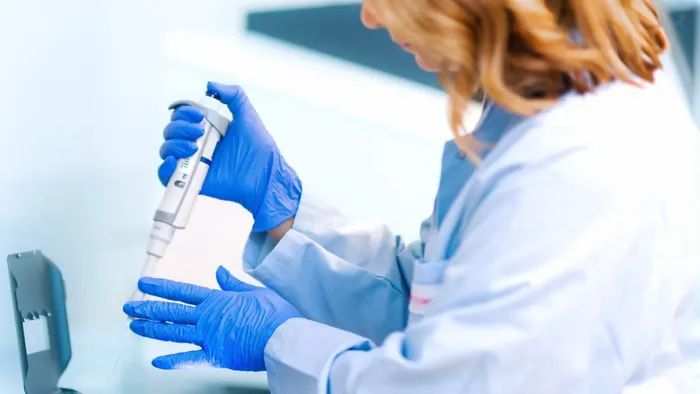
Applications for the DKMS John Hansen Research Grant 2026 are now open, inviting promising young researchers to contribute to advancing the understanding of hematopoietic stem cell transplantation and cell therapy for haematological diseases.
Image: Supplied / DMS website
IN THE VAST landscapes of South Africa, where sunshine meets sprawling townships and bustling cities, a harsh truth emerges: your postcode could determine your health outcomes. A groundbreaking study is shedding light on the stark realities of accessing life-saving care for blood cancers and blood disorders across the country.
With a mere 60 clinical haematologists serving South Africa's entire population – that's roughly one specialist per million people – the contrast with countries like the UK is striking. The UK boasts around 900 specialists for a similar-sized population. This disparity paints a concerning picture of healthcare accessibility in South Africa.
Dr Brigid McMillan, a trailblazing researcher and the first South African recipient of the prestigious DKMS John Hansen Research Grant, is at the forefront of uncovering these healthcare inequalities. Armed with a DKMS Special Grant 2025, McMillan is conducting a comprehensive audit of haematopoietic stem cell transplant (HSCT) services in South Africa. Using cutting-edge Geographic Information Systems (GIS) technology alongside rigorous data analysis, she's mapping the availability of critical healthcare resources like specialist staff, diagnostic labs, blood banks, and radiology facilities.
The early findings are alarming. Of South Africa's 13 transplant centres, only four operate within the public sector, and a mere one offers comprehensive care. McMillan warns of "transplant deserts" – vast areas where patients face limited or no access to specialised treatment for blood cancers and blood disorders. The consequences are dire: delayed diagnoses, lengthy travel distances, and limited follow-up care prevent many from reaching potentially curative treatments.
"The numbers represent real people facing life-threatening conditions," McMillan emphasises. "We're working with deeply personal stories of patients who often feel invisible in the healthcare system. Geographic location shouldn't determine whether someone can access potentially life-saving treatment, but currently it does."
McMillan's research aims to paint a comprehensive national picture of existing treatment services, critical gaps, and necessary infrastructure improvements. The goal is to equip policymakers, healthcare planners, and medical institutions with actionable insights to transform blood cancer and blood disorder care in South Africa.
In the midst of these challenges, there's a call to action for every South African. "Stem cell donor registration remains a critical need," McMillan urges. "It takes mere minutes, but for someone facing a blood cancer or blood disorder diagnosis, it could mean the difference between life and death."
Palesa Mokomele, head of community engagement and communications at DKMS Africa, echoes this sentiment: "Every South African deserves a chance to live, no matter their postcode, income, or background."
Meanwhile, applications for the DKMS John Hansen Research Grant 2026 are now open, inviting promising young researchers to contribute to advancing the understanding of hematopoietic stem cell transplantation and cell therapy for haematological diseases.
This is a story of stark contrasts, of healthcare inequalities shaped by geography, and of the urgent need for change. In South Africa, where postcode could dictate health outcomes, researchers like Dr McMillan are fighting for a future where every individual has a fair chance at life-saving care.